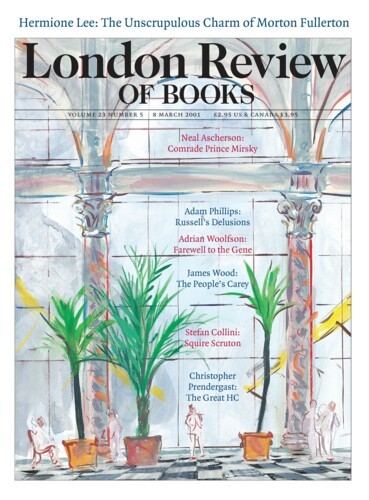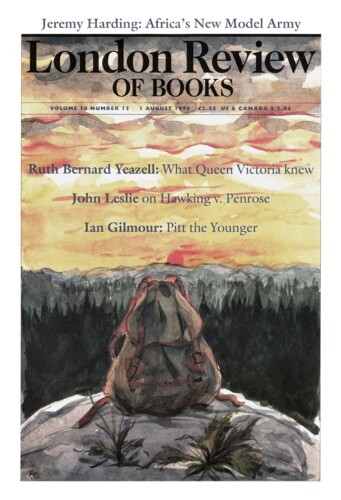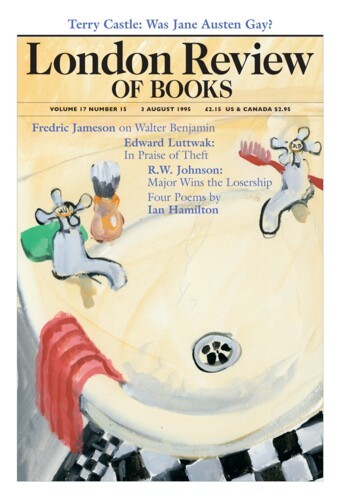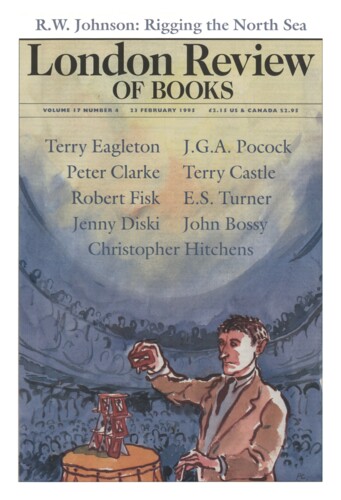Hugh Kenner’s lively Chuck Jones: A Flurry of Drawings belongs to the ‘Portraits of American Genius’ series launched two years ago by the University of California Press with the intention of celebrating American creativity. Books about Toni Morrison and Miles Davis will strike no one as unusual, although the volumes on Gene Roddenberry, creator of Star Trek, and Mabel McKay, a native American medicine woman, were less conventional. Chuck Jones falls somewhere in between. Until he won the Oscar this year only a few self-identified cartoon fans knew his name, but everyone knows the characters in the cartoons he directed and, in some cases, created at Warner Brothers between 1938 and 1962: the dapper rabbit from Brooklyn who, when confronted by the barrel of a rifle, munches his carrot and asks with an insouciance positively sublime, ‘Eh, what’s up doc?’; the gamesome darnfool duck who, foiled in some greedy plot, lisps indignantly. ‘You’re dethpicable’; the horny, ‘scent-imental’ skunk who, oblivious to the flowers and felines drooping with asphyxia everywhere around him, coos suavely, ‘Ah, c’est l’amour, c’est toujours!’; and the resourceful but hapless coyote who – singed, smashed, flattened or otherwise hoist with his own (Acme Co.) petard – blinks dolefully while his roadrunning prey, pausing for an infuriating ‘beep-beep’, whizzes away unfazed. For the adults who watched Bugs, Daffy et al before feature films in cinemas, and the children who watched them on TV, the Merrie Melodies and Looney Tunes of Chuck Jones and his colleagues such as Bob Clampett and Tex Avery have become part of our cultural heritage, as familiar as the actors elsewhere on the Warner Bros lot – Cagney, Bogart, Raft – whose toughness they mirror.’
Hugh Kenner’s lively Chuck Jones: A Flurry of Drawings belongs to the ‘Portraits of American Genius’ series launched two years ago by the University of California Press with the...




